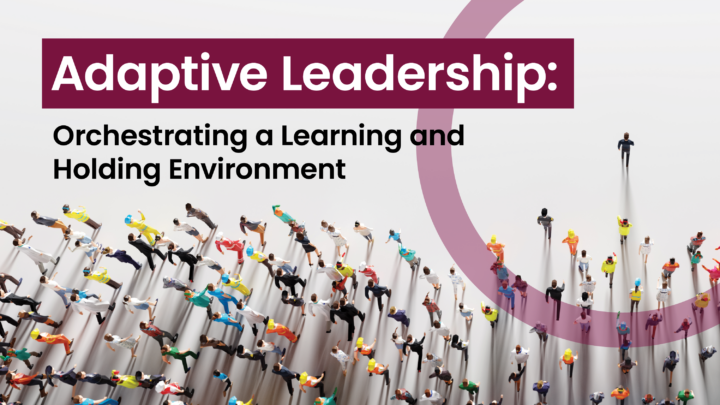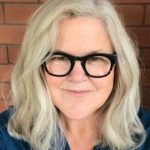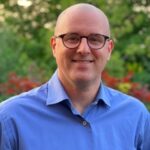Adaptive Leadership: Orchestrating a Learning and Holding Environment
Feb 28, 2025
12:00AM to 11:59PM

Details
- Date: Friday, February 28, 2025
- Time: Full Day
- Delivery: In-person
- Location: David Braley Health Sciences Centre, McMaster University, 2nd Floor
Overview
Adaptive leadership is a practice that involves bringing people with you to better diagnose leadership challenges and to find solutions that require us all to learn new knowledge, think differently, and act differently.
Solving complex adaptive problems requires learning and environments where it is safe for the people with whom you are going to solve these problems to be in honest conversation. More than ever, our world demands a holding environment in which difficult conversations can be held, unique and different perspectives can be held simultaneously, and discomfort can be experienced.
Ron Heifetz teaches that a “holding environment consists of any relationship in which one party has the power to hold the attention of another party and facilitate adaptive work.” This one-day workshop will explore the necessary elements of a “holding environment” or, in Heifetz’s words, the “pot to cook in.”
In this intensive experience, we will explore important aspects of the voice of those exercising leadership. We will learn how one holds others in the process of change as they experience resistance, discomfort, loss, and the dangers of experimenting with new perspectives when the stakes are high. In case-in-point exercises, we will reflect on techniques for raising the heat, lowering the heat, and recognizing the importance of staying in the zone of productive disequilibrium as we move towards the right diagnosis and therapy in the work of leadership in front of us.
Learning Objectives
By attending this activity, participants will be able to:
- Describe the difference between technical and adaptive work.
- Describe the difference between leadership and authority.
- Participate in creating elements of a holding environment, allowing productive discourse when facing adaptive challenges.
- Recognize the role of those practicing leadership in holding those experiencing the change and loss in learning new perspectives in adaptive challenges.
- Describe techniques for increasing and decreasing the tension, allowing the most productive discussions to be held as we face challenges in our day-to-day work.
Speakers
 Dr. Paula Chidwick
Dr. Paula Chidwick
Director Ethics
William Osler Health System
Dr. Paula Chidwick is an ethicist committed to building trusting partnerships with all communities to develop innovative and ethical solutions to the complex problems in healthcare. With a PhD in Philosophy, specializing in Bioethics from the University of Guelph, she became the first Director Ethics at William Osler Health System. She is also the founding Director of the Ethics Quality Improvement Lab (2017), an innovative approach to ethics quality improvement in healthcare and ethics that takes a patient-centred approach to safe, effective, and equitable care.
Dr. Chidwick holds a certificate in Adaptive Leadership from Harvard University and a certificate in Integrative Thinking from the Rotman School of Management. She founded the Clinical Ethics Internship Program at Osler, a training program that offers mentorship and hands-on experience for emerging ethicists, emphasizing personalized learning approaches.
 Dr. Andrew Healey
Dr. Andrew Healey
Dr. Healey is an emergency and critical care physician with extensive experience in health system leadership. Before the pandemic, he served as Division Head and Medical Director of Critical Care at William Osler. During the pandemic, Dr. Healey co-chaired the COVID Clinical Response Committee, establishing the system for managing COVID-19 at one of the hardest-hit hospitals in Canada. He also represented the hospital at provincial IMS tables and as Chief of Emergency Medicine. In January 2024, he became Chief of Critical Care at St. Joseph’s Healthcare in Hamilton. Since 2015, he has served as the Provincial Medical Director for Donation with Trillium Gift of Life (Ontario Health). As an associate clinical professor at McMaster University, his academic interests focus on optimizing death determination, donation processes, and health system leadership.
